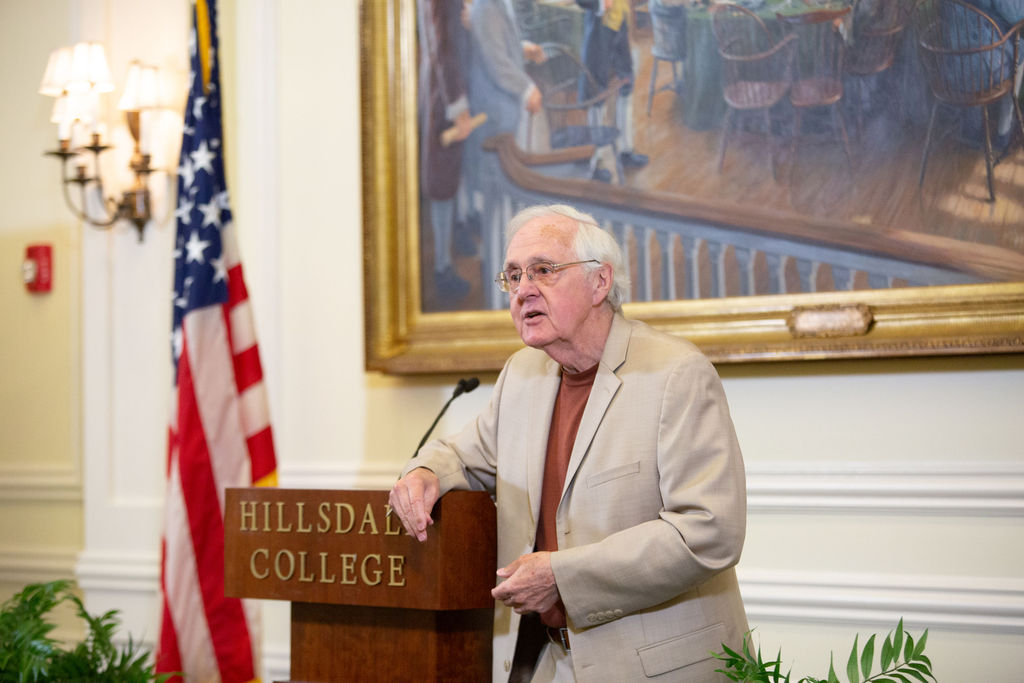
By Krystina Skurk
Hillsdale in D.C. was honored to host Dr. Edward J. Erler in partnership with the Claremont Institute for a lecture on his new book, Property and the Pursuit of Happiness: Locke, the Declaration of Independence, Madison, and the Challenge of the Administrative State.
Dr. Erler is professor emeritus of political science at California State University, San Bernardino. He earned his BA from San Jose State University and his Masters and Ph.D. in government from the Claremont Graduate School. He has published numerous articles on constitutional topics in several different publications.
In his book, Dr. Erler discusses the central role that property played in American constitutional thought during the Founding Era. He argues that the Founders believed that the natural right to property was a comprehensive right that included all other rights. The Founders not only embraced the famed thinker John Locke, but improved and built upon his philosophy.
In his lecture, Dr. Erler defended the Founding against the argument that it rejected ancient political philosophy and instead relied solely on modern political philosophy. He criticized the view of the Founding that rejects the principles of the Declaration of Independence, a document that provides the authoritative ground for the authority of the Constitution.
Dr. Erler argues:
“[T]he Founders were philosophic statesman, open to philosophy and guided by the elementary books of public right, but they were not philosophers. And if we are to understand the founders the way they understood themselves, we must understand Locke the way they understood him.”
Dr. Erler explained that the Founders saw continuity in philosophers from Socrates to Locke instead of the radical break between ancients and moderns.
Further, Dr. Erler discussed the great influence that John Locke had on the Declaration of Independence and the foundational principles that “All men are created equal.” He said that for all of human history up to the American Founding, the question of who should rule was answered by accident and force. However, with equality as a regime principle, it was discovered that bodies of men have the capacity to decide who should rule through deliberation and choice.
During the Q&A portion of the evening one audience member expressed concern about the government’s power to take private property from citizens. Erler argued that the Framers believed property acts like an “early warning system” for an oncoming assault to liberty more generally. “[W]e should take alarm immediately when assaults on the right to property begin,” he stated.
“We should have become alarmed fifty years ago when the Supreme Court ruled against private property rights by substituting the standard of public use for public purpose. Today it's going to be very difficult to roll back and to regain the right to property,” he said.
Dr. Erler concluded by stating that the right to property is an attack upon justice and a regime cannot survive a prolonged attack on justice.